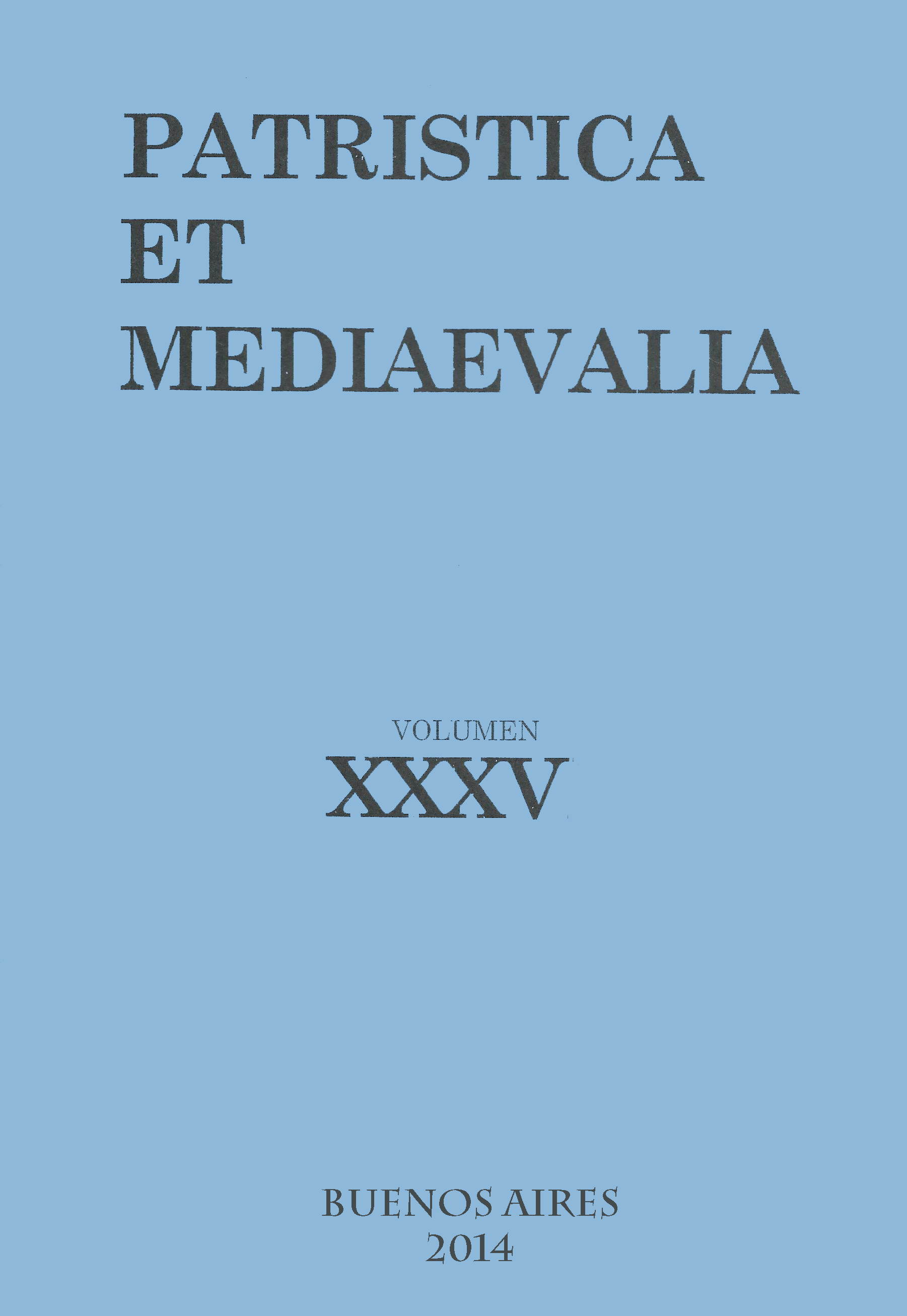Actus, opus, habitus: Ethical Terminology Discussions in the First Reception of the Nichomaquean Ethics in the Middle of the 13th Century
Abstract
This article shows the effects of terminological oscillations of Nicomachean Ethics’ first translations on the first commentators in the Latin West. Here we analyze the dynamics of assimilation between the terms actus, opus and habitus, which opens the possibility, in some anonymous commentators, of an interesting link between two types of Aristotelian teleology.Downloads
References
Bossier, F. (1997). L’élaboration du vocabulaire philosophique chez Burgundio de Pise. En Hamesse, J. (ed). Aux origines du lexique philosophique européen. Actes du Colloque international organisé à Rome par la F.I.D.E.M. [(F.I.D.E.M., Louvain-la-Neuve 102) (Textes et études du Moyen Âge, 8)].
Buffon, V. (2007). L’idéal éthique des maîtres ès arts de Paris. Québec: Université Laval.
Buffon, V. (2010). Omnia appetunt bonus: l’interprétation de la Lectura cum questionibus in Ethicam Nouam du Pseudo-Johannes Peckham. Analytica Revista de Filosofia, 14(2), 137-163.
Buffon, V. (2011). Anonyme (Pseudo-Peckham). Lectura cum questionibus in Ethicam Nouam et Veterem. Prologue. Recherches de Théologie et Philosophie médiévales, 78(2), 297-382.
Buffon, V. (2015). Aristóteles políglota. Particularidades del vocabulario técnico aristotélico según algunas traducciones medievales de la Metafísica y la Ética Nicomáquea. El Hilo de la Fábula, 15, 155-172.
De Libera, A. (1997). Faculté des arts ou Faculté de philosophie? Sur l’idée de philosophie et l’idéal philosophique au XIIIe siècle. En Weijers, O. & Holtz, L. (eds). L’enseignement des disciplines à la Faculté des arts (Paris et Oxford, XIIIe - XIVe siècles) (Studia Artistarum 4). Turnhout: Brepols, 429-444.
Lafleur, C. & Carrier, J. (1997). La réglementation ‘curriculaire’ (‘de forma’) dans les introductions à la philosophie et les guides de l’étudiant de la Faculté des arts de Paris au XIIIe siècle: une mise en contexte. En Lafleur, C. & Carrier, J. (eds). L’enseignement de la philosophie au XIIIe siècle. Autour du “Guide de l’étudiant” du ms. Ripoll 109. Actes du colloque international édités, avec un complément d’études et de textes, par C. Lafleur et J. Carrier, Index et bibliographie avec l’assistance de L. Gilbert et D. Piché (Studi Artistarum 5). Turnhout: Brepols, 521-548.
Weijers, O. (2002). La structure des commentaries philosophiques à la Faculté des arts: quelques observations. En Fioravanti, G. et al. Il commente filosófico nell’occidente latino (secoli xiii-xv). Turnhout: Brepols, 17-41.
1. The authors who publish in this magazine accept the following conditions:
-
They retain the copyright and grant to the magazine the right of the first publication, with the work registered under the Attribution-ShareAlike 4.0 International License that allows third parties to use what is published as long as they mention the authorship of the work and the first publication in this magazine.
-
They can make other independent and additional contractual agreements for the non-exclusive distribution of the version of the article published in this magazine (eg. include it in an institutional repository or publish it in a book) provided that they clearly indicate that the work was first published in this journal.
-
They are allowed and recommended to publish their work on the Internet (for example on institutional or personal pages).
2. AutoArchive Conditions. Authors are allowed and encouraged to distribute post-print electronic versions of their manuscripts because it promotes their circulation, a possible increase of quotation and a major reach among the Academic community. Color RoMEO: blue.













